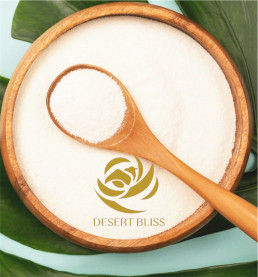Plant-based collagen alternatives
Novel extraction technology could help tap growing consumer demand for effective and functional plant-based collagen alternatives, says Korean startup Rawga.
Anthony Fletcher, Freelance Journalist
September 16, 2024
The growing popularity of collagen supplements – taken for skin, joint, and general health – was in evidence at Vitafoods Europe in May.
A key appeal lies in the fact that collagen is a natural, functional ingredient, offering a range of benefits – but it is not without its drawbacks.
“Some 99.9% of the collagen market is animal-based,” said Raw Kim, CEO of Rawga. “Consumers have pain points when it comes to animal collagen in terms of safety concerns, fishy taste, synthetic additives, and environmental impact.”
The company believes that consumers are increasingly looking for alternatives to animal collagen to improve their personal health, deliver better taste, and protect the environment.
Rawga claims to extract collagen from plant cell walls
To address this need, Rawga developed a technology that it says can extract collagen from the outer cell wall of plants.
“We hydrolyse plants to extract the extensins, or glycoproteins, of the plant's outer cell wall,” explained Kim. “Our technology is able to extract these as the smallest units of collagen – dipeptide and tripeptide structures – rather than just simple plant-derived free amino acids.”
Kim said the next step would be to find a plant rich enough in collagen amino acid composition. Unfortunately for his team, the ideal plant identified – hibiscus – does not grow easily in Korea.
The company therefore had to take the audacious step of establishing a farm in Laos, where hibiscus grows well. The entire industrial process was then vertically integrated, with the aim of bringing a plant-based collagen alternative to market.
“All this required a great deal of time and a lot of capital,” said Kim.
Collagenogenic – or collagen-boosting – properties
The success of this initial work means that Rawga is now well placed to tap into demand for plant-based collagen alternatives.
“[It] has the same collagenogenic matrix as common animal collagen, which means that the body produces collagen from it,” said Kim.
“It doesn't have the unpleasant taste that animal collagen can have, so there's no need for synthetic additives to mask them. We also believe that it is safer, because it is made from organic hibiscus. It contains antioxidants (polyphenols and flavonoids), which are inherent in plants.”
Kim believes this product offers more functionality than many current plant-based products, which simply contain single amino acids derived from plants.
He added: “We felt that we were really able to stand out from companies that are simply blending single amino acids.”
Expansion of plant-based collagen alternatives
The company has carried out in vivo and in vitro studies to confirm the role that collagen plays in maintaining health.
“We’re currently working on clinical trials to add credibility to the [ingredient’s] effectiveness, which will help us expand globally,” said Kim. “Collagen is a universal ingredient that is consumed globally.”
Rawga was the first Korean company to be selected for the Most Innovative Nutraceutical Ingredient category at this year’s Vitafoods Startup Innovation Challenge. This enabled the company to showcase its innovation to global buyers, and the experience of Vitafoods was a highly positive one, the CEO added.
“Participating in this event really gave us confidence in the expansion of plant-based collagen,” said Kim. “We were able to meet with global collagen companies, and I am convinced there is a huge market for innovation here.
